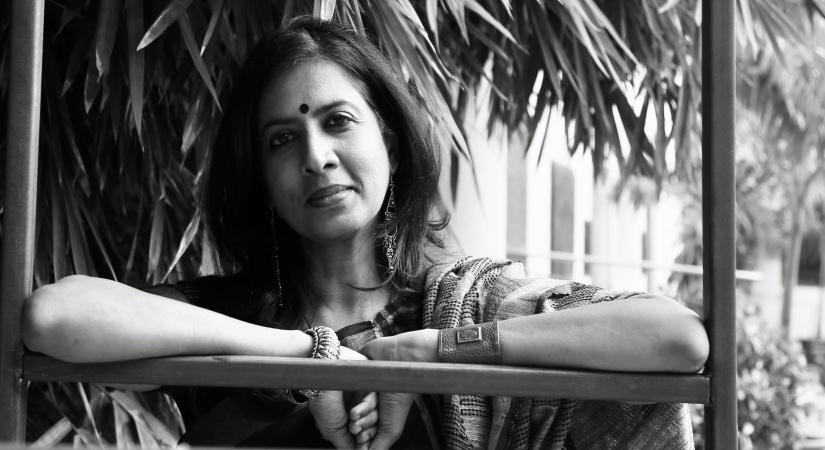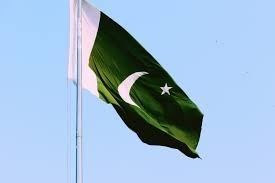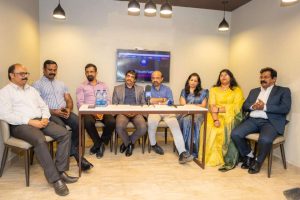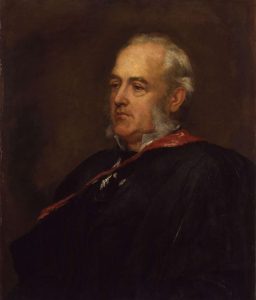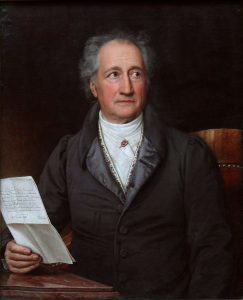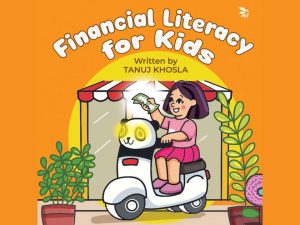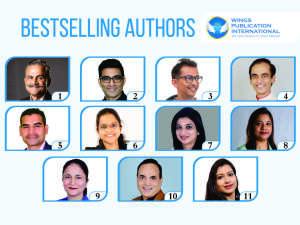In the book, the poet brings together haunting voices of, by, and for women across the Indian subcontinent poetry of ancient Buddhist nuns, Bhakti and Sufi mystics, tantrikas, and Vedantins. There are women here, and men singing as women, and both raising their voices in praise of the sacred feminine…writes Sukant Deepak
She says it has been exciting to smell the danger in their voice. That it has been an infuriating journey too– for whenever she thought she had a hold on the content, someone would parachute in. There would then be chaos, albeit a grateful one.
There seems to be an initial relief when poet Arundhathi Subramaniam says that the book ‘Wild Women, Seekers, Protagonists and Goddesses in Sacred Indian Poetry’ is finally complete after five years, and will be released soon by Penguin. But then immediately after that, there is a pause — as if she is mourning a loss.
“It was something that never got over. And this is something I have been wanting to do for really long. I also did a book in between, and I wrote one on Bhakti too. ‘Eating God’ was an important book in that aspect — it touched people. But I already believe the seeds of ‘Wild Women’ were sown. Of course, it is lovely to read about Kabir but where are the women? Have the women’s voices been muted? Maybe we have tamed and domesticated them… it did not seem they were women on journeys. I wanted to go back and rediscover the rawest realms and smells. It has been such an endless process but so satisfying to listen to their feral sensuality, and their searing questions about custodians of gender and faith. It was time to tune into their brazenness, their heartbreaking longing. Not just for their sake but for ours too.” she tells.
In the book, the poet brings together haunting voices of, by, and for women across the Indian subcontinent poetry of ancient Buddhist nuns, Bhakti and Sufi mystics, tantrikas, and Vedantins. There are women here, and men singing as women, and both raising their voices in praise of the sacred feminine.
Even as we start talking about gender in spirituality, she feels that given the goddesses part of it, they represent the many different aspects of creation and it is in this space that people are comfortable. with the duality. But as soon as it is time to arrive at a definite truth, the goddesses vanish,” smiles this Sahitya Akademi Award and International Piero Bigongiari Prize (Italy) winning poet.
She insists it is the magically messy plurality of the subcontinent that never fails to fascinate her and she wanted to express this sense of wonder and how many living spiritual parts exist in the country — and there are so many women on such different paths — casting off clothes, house makers, mystics, Sufis and devotees…
“And to my mind what makes them my sisterhood is the fact that they are women who ask inconvenient questions and do not settle for easy answers. Frankly, it is about reclaiming what has always existed and reminding us of a messy and unruly existence. Subramaniam, who was Head of Dance and ‘Chauraha’ at the National Centre for the Performing Arts in Mumbai, and has been Editor of the India domain of the Poetry International Web was drawn to the Bhakti poets when her spiritual journey took on a certain urgency. “They took my breath away with their irreverence, their hoarse longing, their full-throated vulnerability. I loved the gumption with which they addressed their gods – complaining to them, quarrelling with them, making love to them, threatening to devour and even demolish
them!”
In her formative years, living in Mumbai had an impact — she had living poets around her who became a living legacy. “I was aware. I had living poets around me. They became a living legacy and you could aspire to be that but at the same time it was not easy, you could not easily become a part of this club, and it was not inviting. But yes, there were conversations around craft and not just people asking questions about how to get published. there was something heady about the license to spend hours discussing line lengths, commas, and the nature of the cliché with others who shared this passion for verbal precision,” says the author of 13 books of poetry and prose who
was shortlisted for the T.S. Eliot Prize in 2015.
But even when she is ready to give up the badge of ‘Bombay poet’, the badge doesn’t leave her. “That suggests a deeper sense of kinship than I am probably aware of,” she smiles. The poet, who was recently at the Jaipur Literature Festival (JLF) 2024 for the session ’Invoking the Muse: Poetry Hour’ stresses that such festivals do help in making the poet visible and also boost book sales. “Also, let me add, poetry does sell.”
And her process? Well, she does admit to having ‘twitchy fingers’ but says that sometimes too much importance is given to sitting down and writing. Stressing that it is important to be in touch with one’s silences, she recalls, “The upcoming book would lurch and halt — and both are important. Just because one writes every day does not mean
you are creating something profound or significant, it just means you’re exercising every day.”
While she is still “recovering” from Wild Women, there are poems that she wants to go back to, “But as I said, it is important to stay still too.”
ALSO READ-Vishal Bhardwaj’s Cinematic Poetry

